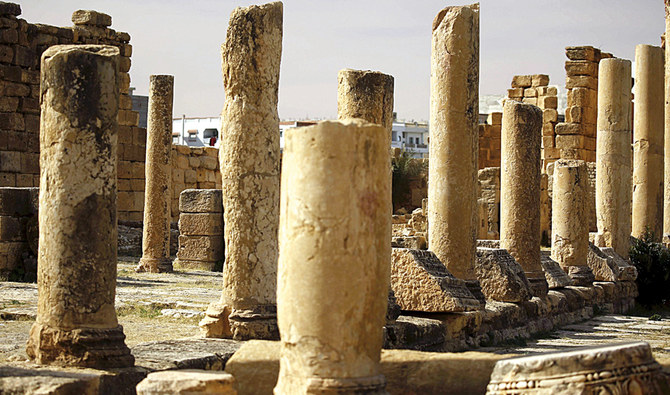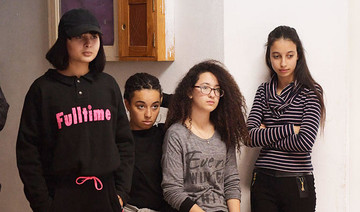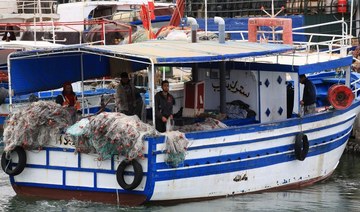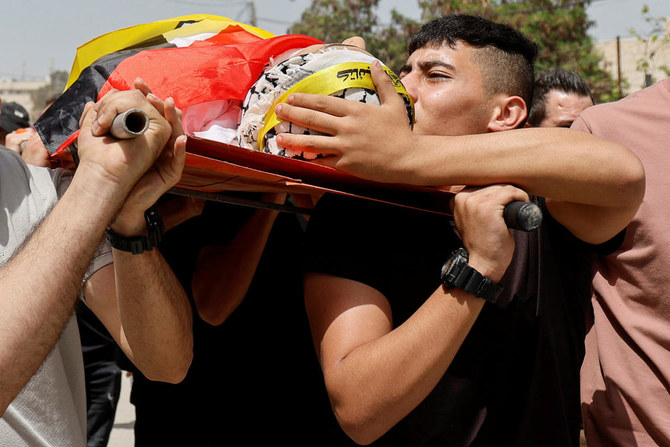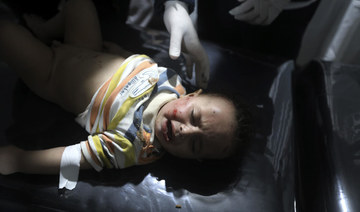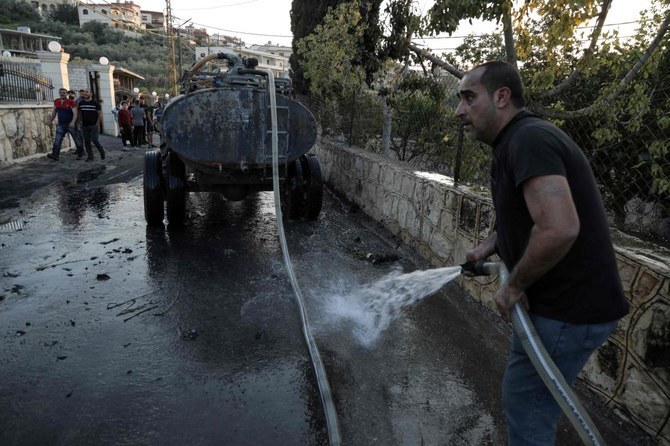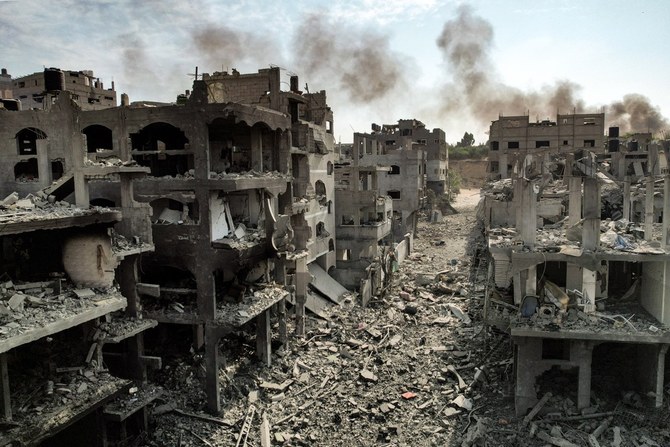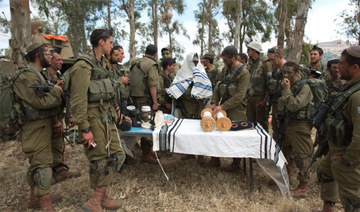FOUSSANA/TUNISIA: Standing near the shrine of the Sufi scholar Sidi Boughanem in western Tunisia, Karim points to the earth below his feet.
“There are stairs under the ground,” he said. “We started digging, but we had to stop because someone called the police.”
At the foot of a mountain covered with Roman villas and antique olive oil factories, the shrine sits atop buried structures and catacombs that date back to the Roman and Byzantine periods.
Archaeological sites such as this one in the region of Kasserine are often looted or damaged during illegal nighttime excavations by people looking for goods to sell, said Karim, a local historian from the nearby town of Foussana.
Then there are farmers who stumble across antiques by accident while planting crops, he added, and other people who go digging on their own land in the hope of finding artifacts they can sell.
Karim takes part in these digs out of curiosity. But his colleagues are hunting for treasures, he said.
“There are multiple groups (that do this),” said Karim, whose name has been changed for his safety.
The looting of archaeological sites is a longstanding problem in Tunisia, said Yasser Jrad, head of the seized objects department at the National Heritage Institute (INP).
Objects of significant historical and cultural value often end up on the European market and in the homes of Tunisia’s rich and powerful, he explained.
The issue was brought into the spotlight in 2011, when Tunisia’s ousted Zine El-Abidine Ben Ali was sentenced to 35 years in prison in the first of several trials for a range of crimes, including possession of archaeological artifacts.
In 2017, the Tunisian authorities seized a rare 15th-century Torah scroll that they thought was being smuggled to Europe.
More recently, in March customs seized 600 antique coins dating from the 2nd century from a car in the coastal town of Sfax.
Figures from the INP, which is tasked with protecting and recording the country’s artifacts, show that the team has received more than 25,000 recovered archaeological items since the 2011 uprising.
Today, the INP gets more than double the number of reports for Kasserine than it did before the uprising, said Mohamed Ben Nejma, head of the region for the institute, adding that the instability and chaos of conflict often provides a window for archaeological looting.
But he also attributed the increase in recovered objects to the fact that the authorities are getting more serious about tackling the illicit antiquities trade.
“It might have been partly to do with state interests,” said Jrad.
“Especially, since we discovered pieces stolen from our (national) sites in the houses of Ben Ali and his family.”
Keeping hidden
The western region of Kasserine, where the shrine of Sidi Boughanem is located, is one of the most marginalized parts of the country — with government figures showing about one in four people unemployed, far higher than the 15 percent unemployment rate for the country as a whole. It is also one of the most archaeologically rich. There are four major sites located in an area of 8,000 sq. km, and the land is peppered with architectural ruins and antique stones.
Bigger sites are guarded around the clock, according to the INP, while less significant sites have security guards during the day. But the sheer number of small sites makes it impossible to keep an eye on all of them, said Nejma.
Ridha Shili, an expert in national heritage promotion with the University of Tunis, said it is the lack of proper excavation projects and cultural investment in general that leaves the Kasserine region open to looting.
“It is kind of a virgin region,” said Shili, pointing out that his hometown of Thala alone has about 350 archaeological sites.
“The state prefers for (these sites) to remain hidden because we don’t have the means to protect them,” he said.
When a new site is discovered, instead of guarding it or moving the artefacts to somewhere secure, “the state documents it, they take photos and then they put the earth back over it,” Shili added.
As she surveys sites around Foussana for her research, Wafa Mouelhi, an archaeology masters student at the University of Tunis, takes pictures whenever she sees that someone has been digging.
“You see holes, you notice with the placement of stones that someone has been there,” she said. “People are looking for statues or gold and jewelry.”
Mouelhi and other residents inform the local authorities about illegal excavations. In January, she caught someone from the town attempting to dig up a mosaic and ceramics from a Roman site that contains a church.
’Everything is stolen from us’
Matthew Hobson of the UK-based Endangered Archaeology in the Middle East and North Africa project, said multiple factors need to be taken into account when it comes to protecting heritage sites from theft, which is often driven by poverty and political instability.
“There are economic reasons (for looting),” he told the Thomson Reuters Foundation in Tunis. “The blame should not be put on the people who are trying to get by day-to-day, but the persons who are furnishing these collections.”
Unlike in Libya or Egypt, the antiquities trade in Tunisia is fairly small and disorganized, according to a local policeman, who asked to remain anonymous to protect his job.
“It’s just pocket money, people sell things for less than they are worth,” he said.
Abdelbaki Idoudi, a civil servant from Foussena, said the country’s unprotected artefacts are fair game and that citizens have the right to benefit from rogue archaeological digs.
“The state left of all of (the artefacts) and doesn’t look after them,” he said. “I’m for the practice because people can profit, it can help people get some money from their (heritage).”
Others, such as Ayoub Sayhi, a 22-year-old amateur filmmaker from Thala, called on the government to do more to care for the country’s ancient objects.
To Sayhi, the looting of Kasserine’s antiquities was just another symptom of what he saw as the state’s neglect of the region.
“(My film) is to get the government to do something about this region because it is poor even though it is rich in natural resources,” he said.
“Everything is stolen from us, both in the day and in the night.”



